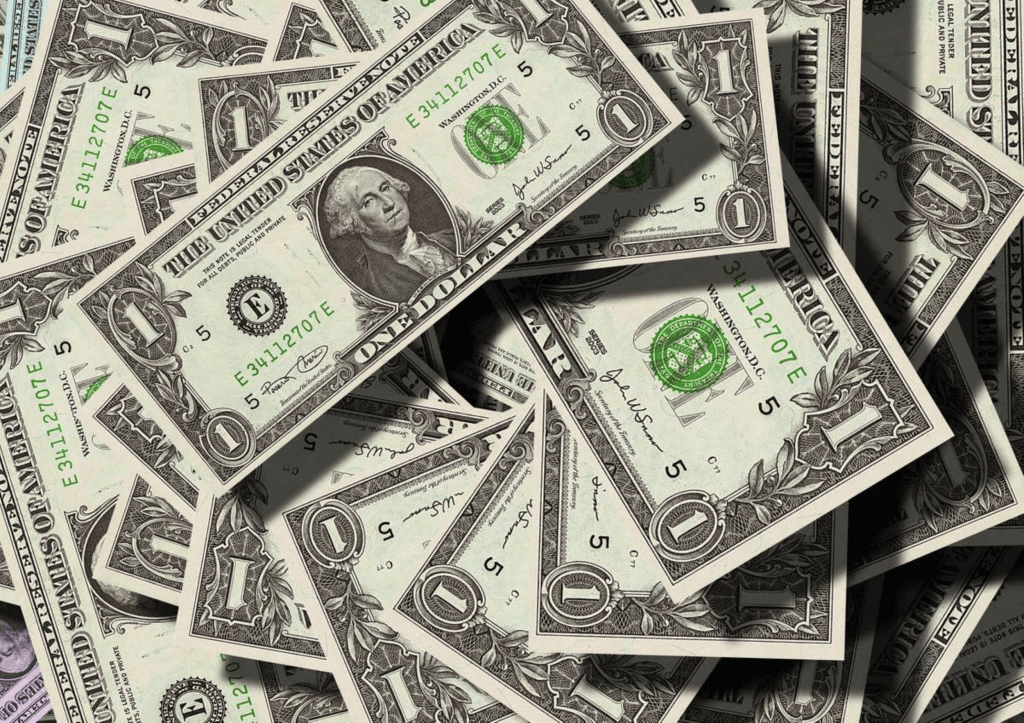US Paper Money Day
US Paper Money Day is observed next on Tuesday, March 10th, 2026 (166 days from today).

History of Paper Money
Money can be everything but need to be accepted by a group of people for goods or services exchange. Most countries have a unique system of exchanging coins and banknotes. Some currencies, like the euro, can be used throughout the region.
Before the invention of money, goods and services were often exchanged through barter. For example, a person can exchange eight bags of rice for a goat. Many basic commodities including salt, tea, seeds, tobacco, and livestock were also used as money in exchange for goods and services.
In 5000 BC, the earliest metal objects representing money. The Lydians started using coins in the 7th century BC. During the Tang Dynasty (618 - 907 AD), the earliest forms of paper money were born in China. In the United States, the first paper money was created in 1690 with name “a bill of credit”, and represented the colony's obligations to soldiers. Soldiers can spend or exchange colony IOUs like gold and silver coins.
During the revolution of 1775, colonial leaders attempted to replicate Massachusetts' paper experiment on a broader scale, but the newly baptized continents did not have any support, such as: silver or gold. On a small scale, it can work, but so much money is being printed that inflation quickly depletes its value.
Less than 100 years later, i.e. in 1861, two competing currencies were issued to finance the opposing factions in the Civil War. Their value fluctuated according to the fortunes of the war. However, it was not until the National Banking Act that the US government introduced a monetary system where banks could issue paper money based on their holdings of government bonds. These various currencies were disappeared in the following decades because of taxing and then changed to national banknotes, giving the United States the first unified paper money.
In 1913, a national banking system that could keep up with the changing financial needs of the country, was created by The Federal Reserve Act. Then, the Federal Reserve Board issued the first federal note as a $10 note in 1914. The Federal Reserve then decided to reduce the actual size of the note by 30% until 1996, when a series of improvements were made to make the US dollar more counterfeit-proof.
Some facts about paper money
- Before money was invented, goods and services were exchanged through barter or use of commodities such as salt, livestock or grain.
- Humans have been using metal objects as money to exchange goods and services as early as 5000 BC.
- Banknotes in the United States date back to 1690 and represent bills of credit or IOUs.
- There are some new currencies in the United States in 1861 to support the Civil War in finance.
- In 1996, a series of banknotes were introduced using new methods of anti-counterfeiting.
How to celebrate US Paper Money Day
Do you have any ideas for US Paper Money Day celebration? You can hold a small party with your friends, family members to discuss about some types of money in US as well as their history. Do not share and post on the social media to encourage others to take part in and get knowledge about US Paper Money Day.
Observed
US Paper Money Day has been observed annually on March 10th.Dates
Sunday, March 10th, 2024
Monday, March 10th, 2025
Tuesday, March 10th, 2026
Wednesday, March 10th, 2027
Friday, March 10th, 2028


